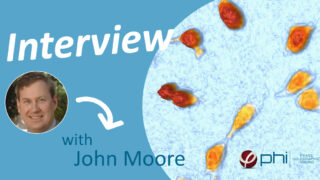EU grants 2.1 million euro to Phase Holographic Imaging and Malmö University with partners for joint cancer research

The European Commission has appointed Phase Holographic Imaging, Bundesanstalt für Material-forschung und Prüfung (Germany’s federal technology research institute), Malmö, Umeå, Copenhagen and Turku University to develop improved methods for clinically diagnosing cancer. The €2.1 million grant finances a three-year research project which is coordinated by Malmö University and commercialized by Phase Holographic Imaging (PHI).
Current methods for diagnosing cancer primarily focus on the proteins associated with cancer. However, there is increasing evidence that carbohydrates play an important role in the development and progression of malignant cancer. Current methods use and rely on antibodies created by living organisms. These natural antibodies, however, are not sufficiently specific to accurately detect and image carbohydrates.
“Oncology research and diagnostics are in need of low-cost and robust probes to detect carbohydrates. The project’s goal is to meet this need by combining specific carbohydrate probes – in the form of molecular imprinted polymers or ‘plastic antibodies’ – with holographic microscopy”, said Anette Gjörloff Wingren, Ass. Professor, Malmö University.
“This grant is a milestone for PHI. The recognition by the European Commission shows that the possibili-ties our holographic microscopy technology provides in the battle against cancer is rapidly becoming well known and established in the medical research community”, said CEO Peter Egelberg.
As the commercializing partner of the project, PHI has the right to commercialize the research results to further develop these from prototype to finished product. For more information regarding the research project see Research news at Malmö University (in Swedish).

